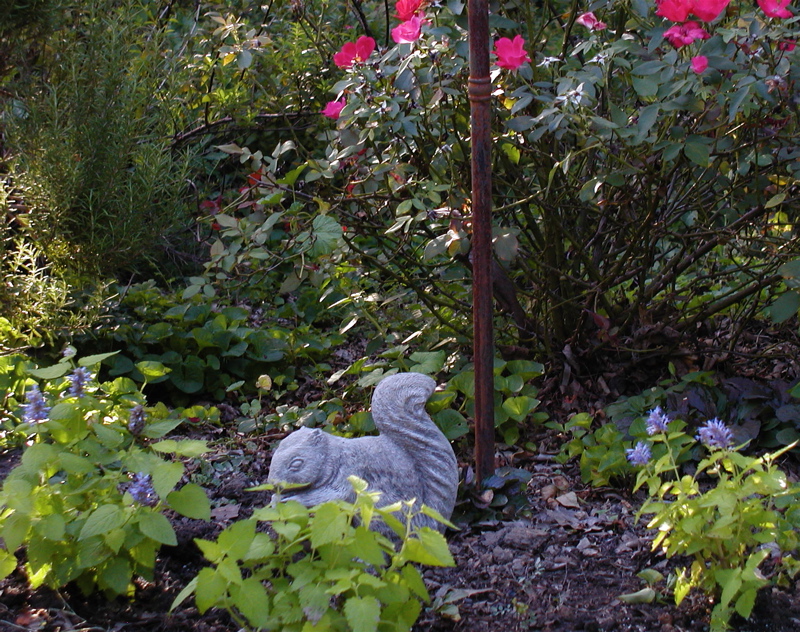Romance in the Garden
 Wednesday, September 8, 2010 at 6:00AM
Wednesday, September 8, 2010 at 6:00AM There is romance in my garden. This past weekend a female redbird flew to a tree near where I was standing, and a male soon joined her. He rubbed his face against hers and then gave her a seed he carried in his beak. How sweet! It's not nesting season, but they were obviously a mated pair. I have always been partial to cardinals. They are regal, well mannered birds, and this simple act of kindness confirmed my good opinion of the species. No doubt their babies are grown now, but the two birds remain committed to each other. Lou and I celebrated our thirty-fifth wedding anniversary on September 5, and I think we are a lot like those redbirds! Lou likes to cook, and he's always preparing good food to share with me.
An example: Over the week end I took some photos in the garden. Here's some taken along a side path where hydrangeas, dogwoods, and redbud trees grow. The blooming hydrangea is 'Limelight'. The lighting seems romantic, doesn't it?
Well, the mystical, filtered light is actually smoke coming from the grill where Lou was barbecuing chicken!
Here's a few other photos of my garden in September. The air is a little cooler now, and many plants are beginning to revive from the summer slump — and so is the gardener!
Rosa mutabilis has a new flush of flowers.
Recently planted Agastache 'Golden Juilee' is beginning to bloom. This wonderful herb smells like licorice.
The blue misty flowers of caryopteris are bright against the golden green foliage of other plants. Butterflies love this shrub.
A variegated osmanthus is putting out new leaves.
In a month or two, fall colors will arrive, but for now September foliage remains fresh and verdant.
It's a great time for a stroll through the garden with my sweetheart!
May you all have wonderful moments (and tasty treats) to share with loved ones. Deborah
